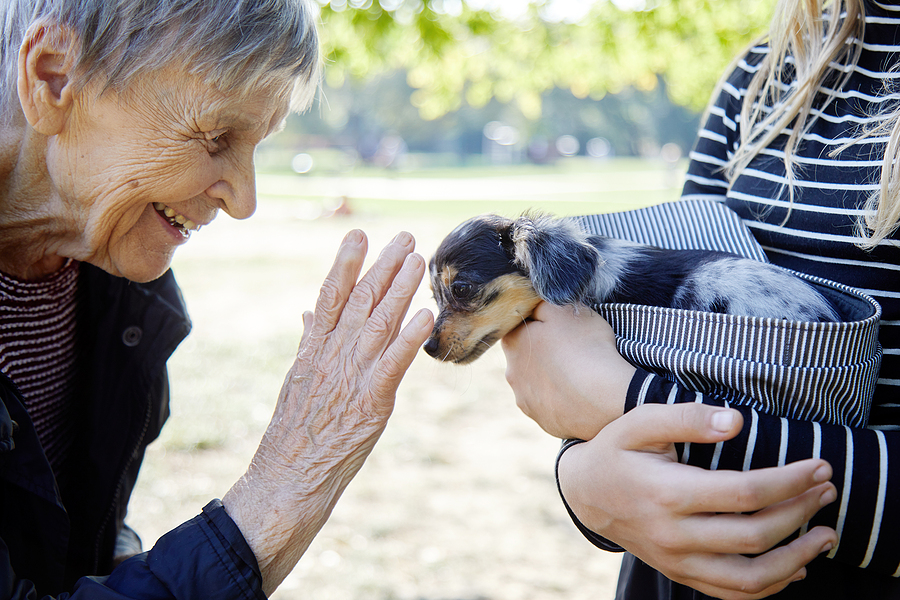From hotels to retail shops to the workplace, our society is becoming increasingly pet-friendly, and that welcoming attitude toward four-legged friends is beginning to extend to the long-term care environment. More and more LTC facilities are allowing people to bring along their beloved pets–or at least offer visitation time–and they are seeing a number of benefits to their residents.
Recent research studies have revealed that seniors who own pets require fewer trips to the doctor, have lower blood pressure and cholesterol levels, reduce their risk of heart disease, and have higher heart disease survival rates. Senior pet owners smile more, talk more, and experience an increased overall sense of well-being.
A purrr-fect match
But research studies aside, the many advantages that pets bring to the lives of long-term care residents are clear:
- Companionship: Older adults who own a pet typically feel a strong bond of companionship with their animal. Pets can also reduce isolation. As anyone who has owned a dog knows, you meet all of the other dog owners in the neighborhood when you regularly walk your pet! Animals make for great ice-breakers, which can increase communication and build friendships among residents.
- Exercise: Walking that companion pet is also a great reason for seniors to get outside and get some exercise in the fresh air, which in turn can offer a plethora of mental and physical health benefits.
- Sense of purpose: Long-term care residents with a pet feel not only affection toward their animal, often they also recognize the responsibility that goes along with pet ownership. That sense of purpose in their life can build self-esteem and decrease depression.
- Stress reduction and comfort: Whether it is the loss of a loved one or a serious illness, pets provide comfort during difficult times. Holding, petting, even watching a beloved animal can instantly lower anxiety levels.
Choosing a furry companion for seniors
If you or your loved one is considering getting a pet, there are a few important considerations:
- First and foremost, be sure you understand the pet-related policies of your long-term care community. Check on size/weight restrictions or other stipulations for pet ownership that may be in place.
- Some pets require more “work” than others. For many seniors, an adult dog may be more suitable than a puppy (think house-breaking), and cats are typically lower-maintenance than dogs. Learn more about pet adoption.
- Consider the temperament and activity level of a dog breed to determine if it is a good match for the new owner. Learn more about the characteristics of different dog breeds here.
- For both cats and dogs, be sure to think about the amount of grooming a breed requires and how much they will shed (i.e., how much clean-up may be needed).
- There are expenses associated with pet ownership. Food, veterinary bills, grooming and other necessities can add up quickly, especially for seniors who are on a fixed income.

FREE Detailed Profile Reports on CCRCs/Life Plan Communities
Search Communities






